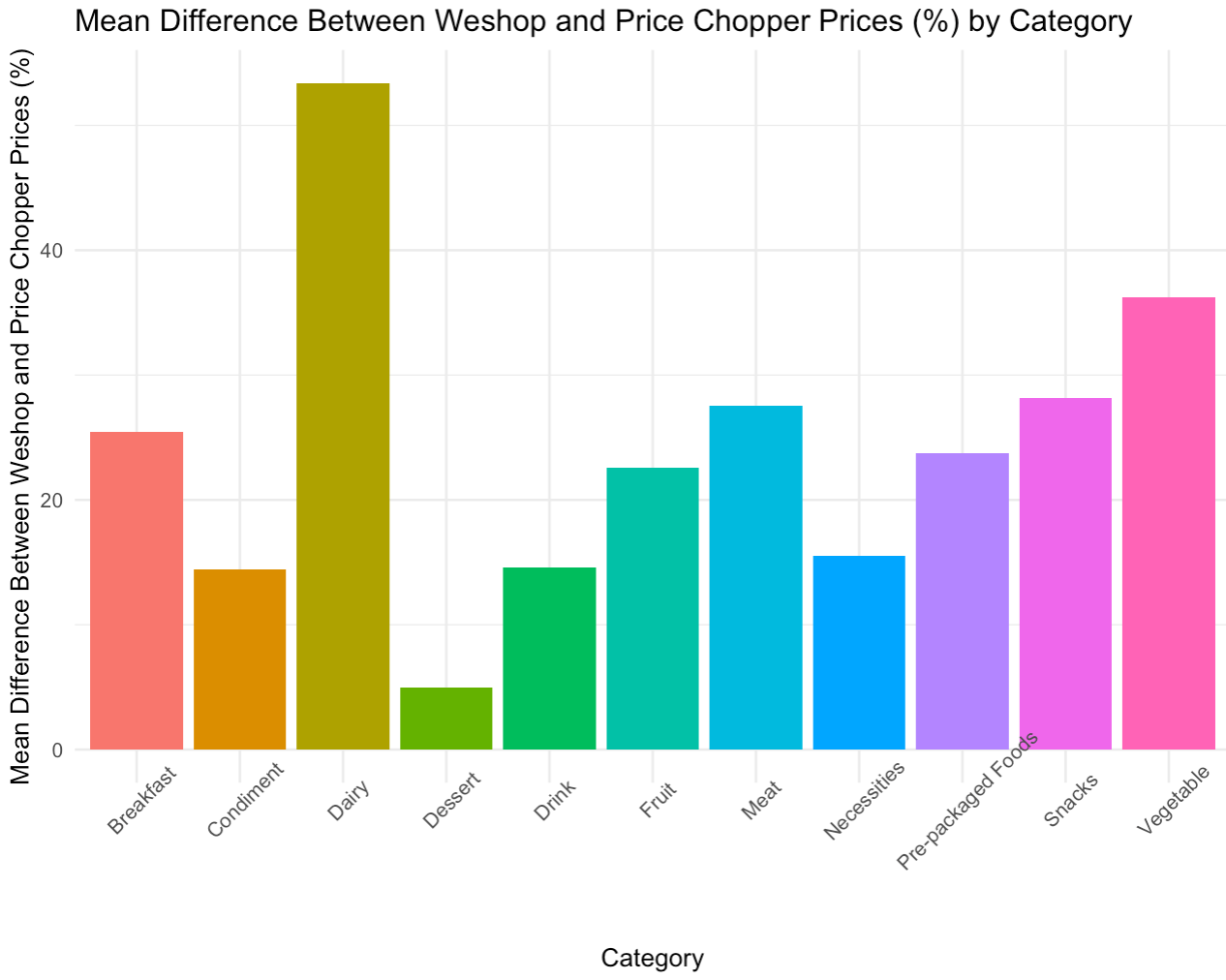
In recent months, national rates of inflation have soared, meaning that many everyday products now cost more than ever. At the University’s campus grocery store, Weshop, there has been a similarly noticeable rise in the price of various items. However, certain products have had their prices exempt from such increases so that students may continue to purchase necessities. But the question remains: why do Weshop prices continue to increase, and what constitutes a necessity?
Weshop prices have always been higher than those at grocery stores around Middletown, a fact that the University has always acknowledged. Added operating costs and expenses incurred from obtaining items have tended to raise prices. In addition, many products sold at the store are supplied by local companies such as Ronnybrook Farms, leading to increases in the quality and, therefore, the price of items.
“I use up all my points at Weshop,” one sophomore student said, exiting the store with a small bagful of food. “Even a small shopping trip can bring me down almost thirty points… it’s really hard to find everything I want without spending a lot.”
Typically, the prices of Weshop items rise in order to match increases in meal plan points. This model is enforced by the University, which hopes to strike an appropriate balance between the cost it takes to put the item on the shelf and the amount of points each student has. That model has proved ineffective this semester—prices have continued to climb while the amount of points in students’ meal plans has remained the same. In addition, navigating both operating costs and inflation has placed additional strain on Bon Appetit.
“Historically, prices at Weshop have been determined based on the costs of procuring the product to be sold,” Bon Appetit Resident District Manager Michael Strumpf wrote in an email to The Argus. “This year, when the Residential Comprehensive Fee (RCF) increased at a rate much lower than food-inflation, our model has been challenged.”
Even though many parts of the supply chain have undergone price increases, Bon Appetit has been working to ensure that important items remain affordable to students.
“We have begun holding the prices of certain foods lower than normal,” Strumpf wrote. “These foods include things like poultry, bread, eggs, dairy, and personal items like toilet paper.”
It is worth noting that price caps have already been placed on many of the items sold at Weshop. For example, the price for eggs is only pennies more at Weshop than at local grocery stores, and Ben and Jerry’s ice cream is priced similarly to Price Chopper. Pasta, certain tomato sauces, ramen, bread, and other essentials are also similar in price to their equivalents at Price Chopper.
However, only one brand of certain items like paper plates, tissues, and detergent are sold at WesShop. As an eco-friendly brand, Seventh Generation is considerably pricier than other companies. For students, this means that just four rolls of toilet paper amounts to $6.50, which, over time, can drain students’ points.

Dairy products seem to have the highest mean difference in price compared to items at local grocery stores. Most dairy items at Weshop are priced 50% higher than their counterparts sold at outside stores, and some items have seen an even bigger price jump. Kraft Shredded Taco Cheese costs $6.99 at Weshop, more than double the $2.98 price at Walmart. Most milk and yogurt items, as well as dairy-free alternatives, are also subject to a 50–60% increase in price, despite being generally considered essential products.
In order to determine which products were to be regarded as necessities, the Wesleyan Student Assembly (WSA) met with Strumpf, Director of Auxiliary Services Michelle Myers-Brown, Dean of Students and Assistant Vice President of Student Affairs Rick Culliton, Vice President of Student Affairs Michael Whaley, and Associate Vice President for Finance Chris Olt. During this meeting, they also discussed imposing price caps on certain WesShop goods in order to ensure that grocery essentials, such as the bread, produce, and dairy products that Strumpf mentioned, would remain affordable and accessible to all students.
“I think the price caps should cover things like produce and eggs, but not gummy bears,” WSA Student Life Committee (SLC) Chair Orly Meyer ’24 wrote in an email to The Argus. “Before classes started, I met with Michael [Strumpf] and Michelle [Myers-Brown] who informed me that the cost to operate WesShop this semester was extremely high compared to previous years, and that this would be reflected in the prices…it was important to keep certain things affordable.”
In addition to price caps, Bon Appetit and the University have been considering the possibility of increasing the number of points available for meal plans next semester. Bon Appetit and the WSA are committed to working together to ensure that students are able to afford items at Weshop, and welcome feedback from the community on prices.
“My role is to inform [Bon Appetit] of the issue and assess how potential solutions would affect students,” Meyer wrote. “If people have particular items that they think are too high, they are welcome to email me.”
The types of products stocked at Weshop are also well-planned to ensure that every item on the shelf is a product that Wesleyan students would in fact buy. They should also be items that are convenient to obtain on campus, as the nearest big box grocery store is a mile away—a trip that requires planning for students without a car.
“Bon Appetit stocks items based on supply chain availability, popularity of an item, and after evaluating the cost of an item,” Strumpf wrote. “Food is sourced with our commitment to support sustainable dining and use our contracted vendors.”
As Weshop prices continue to be a point of contention for Wesleyan students, what will come of the meal plan, students’ points, as well the prices of WesShop items next semester remains unclear.
Caleb Henning contributed reporting.
Carolyn Neugarten can be reached at cneugarten@wesleyan.edu.


Leave a Reply